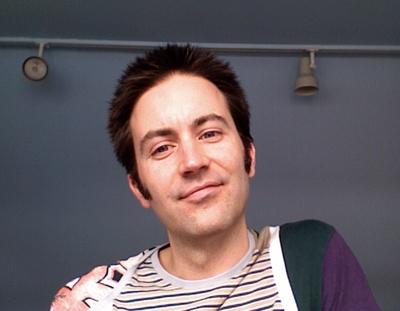
Kevin Allen and his team conducted much of the research in the archives at the university.
Kevin Allen
Sept. 4, 2015

Kevin Allen and his team conducted much of the research in the archives at the university.
Kevin Allen
Kevin Allen’s research into the history of gay people in Calgary started around the dinner table with his parents one night. He asked what it was like for gay people in the city before 1970, the year he was born.
“They joked there were no gay people before I was born,” says Allen. “Later that evening, my father confessed that he knew not to go to the Palliser Hotel Tavern, particularly on the weekends, or people would think he was gay.”
Allen is leading the Calgary Gay History Project that records the history of gay and lesbian culture in the city. The project recently received an honourable mention for the Governor General's History Award for Excellence in Community Programming.
Having mined his family archives, Allen and his volunteers turned to Archives and Special Collections (ASC) at the University of Calgary for more information.
Old student newspapers trace change in societal attitudes
“We went through old issues of The Gauntlet newspaper from the '60s and '70s and we also looked at different theses,” says Allen. “The first time anything about homosexuality was mentioned academically was in 1970 in a thesis for a master's degree in social work.”
From the archives, he saw that people who attended meetings of the fledgling Gay Liberation Front on campus in the 1970s were considered radical activists; in fact, the first gay students' association started in 1977.
“Student newspapers are a vital record of campus life and a dynamic source of information on youth culture and changes in society as a whole as witnessed by generations of university students,” explains Annie Murray, head of ASC which is operated by Libraries and Cultural Resources.
“Volunteer Nevena Ivanovic spent months in the reading room carefully going through the newspaper one issue at a time, examining references to and attitudes about gay and lesbian history on campus, and in society as a whole as it was reflected in the newspaper.”
Research also turned up a handwritten message from 1992 bashing that year’s Gay Pride Parade. It had been tacked anonymously to the office door of the Gay and Lesbian Academics, Students and Staff Society.
“It was really shocking to see it,” he says. “I remember when that happened.”
Signs of a more tolerant campus moving forward
Allen, an alumnus of the university himself, graduated with a bachelor of science degree in psychology and zoology in 1993. He returned to the university the next decade to run NUTV for a few years.
“In the '90s, there were a lot of culture wars. There was a lot of backlash as well homophobia on campus,” he says. “When I went back in 2000 it was a more tolerant campus. Today, 10 years after the legalization of same-sex marriage in Canada, I think we’ve moved even more steps forward.”